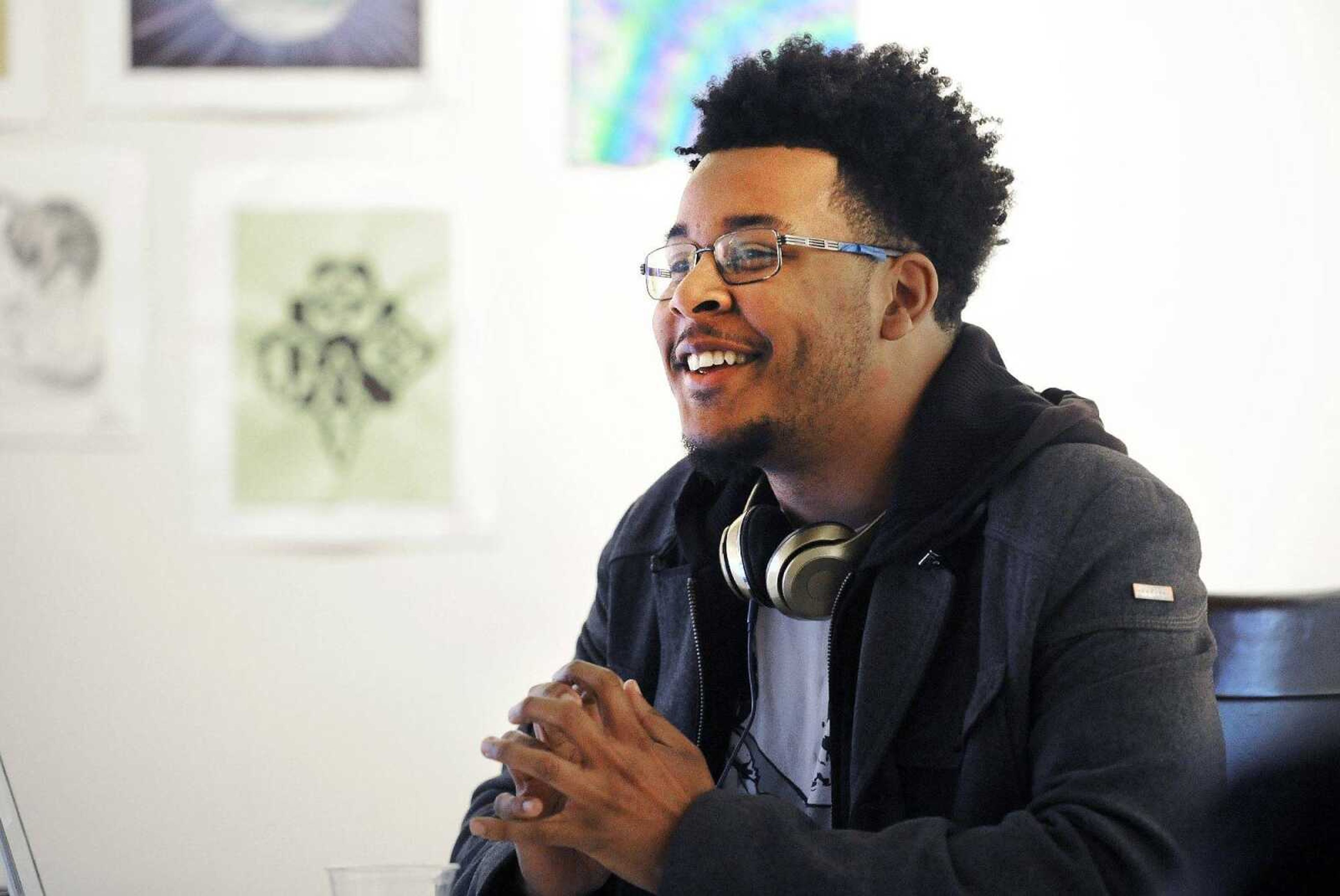Artist addresses race at Red Light Night lecture
Local artist Tyler Harris tackled race in art and society in the first of this year’s Arts Council of Southeast Missouri Red Light Night lectures. A senior art-education major at Southeast Missouri State University, Harris uses his own art as a means to address the social ills he sees in contemporary culture...
Local artist Tyler Harris tackled race in art and society in the first of this year’s Arts Council of Southeast Missouri Red Light Night lectures.
A senior art-education major at Southeast Missouri State University, Harris uses his own art as a means to address the social ills he sees in contemporary culture.
Harris said as a black man, prejudice and institutional bias forced him to move through life differently from a young age.
He shared with the audience his memory of the first time his father and grandfather warned him how to handle interactions with the police. He was 11.
“Go about your day and handle it in court,” he was told.
Furthermore, he remembers a striking dearth of pop-culture role models with whom he could identify sincerely.
“When you’re growing up, you want an image to look up to,” he said. “There wasn’t a lot of representation.”
Now, through his art, he can remedy that. In a process he calls “race-bending,” much of his art sees him reimagining the icons of his youth as black characters. Harris shared several of these quasi-self-portraits, showing himself rendered in the style of popular ’90s anime series “Dragonball Z” and “Pokemon.”
Also present in his art is commentary on the often fraught manner in which people — including blacks — regard African physical attributes.
He said he wears his own hair in an Afro as a badge of pride, signifying he not only accepts his natural appearance, but cherishes it as an important facet of his identity.
He said not everyone does, however. Some, he said, find an individual’s appearance less acceptable, less professional and less attractive in proportion to how stereotypically African the person looks.
Non-blacks, he said, tend to show preferential treatment to blacks who look less African, but within the black community, this dynamic often is inverted. As an individual with light skin, Harris said growing up, he often was met with disdain for the color of his skin by other blacks — ostracized for not being “black enough.”
“Oh, you don’t count, you’re one of them,” he recalled hearing in school for being light-skinned, studious and articulate.
He showed a piece denouncing the use of the n-word, even as a colloquialism. In his view, he said, its connotation is so intrinsically negative, even using it in optimal circumstances is detrimental to the collective self-esteem and identity of the black community.
“Ever hear anyone say, ‘You a doctor? You a lawyer? You a real n---a,’” he asked rhetorically, before assuring the giggling crowd, no, that’s not the way it works.
His point was that to elevate the national discourse, no change is too petty. Even something as small as a better vocabulary can make a difference.
The way he makes his difference, though, is through art.
“If we don’t talk about these issues and get our point across,” he asked, “how are we going to expect anything to change?”
tgraef@semissourian.com
(573) 388-3627
Connect with the Southeast Missourian Newsroom:
For corrections to this story or other insights for the editor, click here. To submit a letter to the editor, click here. To learn about the Southeast Missourian’s AI Policy, click here.








